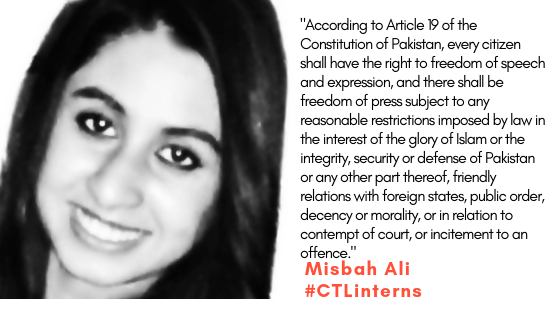Freedom of Speech and Censorship: A Tug-Of-War
Through the unlocked doors of history echoes the uproar against suppression and struggle for freedom of speech. Despite the pressure and deliberate force, this fundamental right has struggled throughout history and stood by its resonance.
One of the most famous trials that history has ever witnessed dates back to 399 BC when the Greek philosopher Socrates was prosecuted for speech that contradicted Athenian values. S. Mills writes in his book On Liberty:
“Mankind can hardly be too often reminded that there was once a man named Socrates, between whom and the legal authorities and public opinion of his time there took place a memorable collision…”
This topic never ceases to debate its sensitive issues, thus signifying its relevance even in modern democratic societies today. It is natural for humans to express their thoughts and share them with fellow beings and the essence of this nature has built the foundation for human rights. However, certain political and cultural limitations also exist, which tend to either maintain stability or create more conflict.
Article 19 of the Universal Declaration of Human Rights (UDHR) states:
“Everyone has the right to freedom of opinion and expression; this right includes freedom to hold opinions without interference and to seek, receive and impart information and ideas through any media and regardless of frontiers.”
Moreover, Article 19 of the Constitution of Pakistan 1973 also states:
“Every citizen shall have the right to freedom of speech and expression, and there shall be freedom of press…”
But this article continues further by stating the following:
“… subject to any reasonable restrictions imposed by law in the interest of the glory of Islam or the integrity, security or defense of Pakistan or any other part thereof, friendly relations with foreign States, public order, decency or morality, or in relation to contempt of court, or incitement to an offence.”
The latter part of this article promulgates restrictions over free speech. The question is, to what extent can a person exercise his or her right to free speech and in what circumstances does the state legitimize censorship over such matters?
Out of many issues, one of the most common dilemmas regarding freedom of speech is that it is often misinterpreted or used as a cover for hate speech inciting violence. Hate speech has no defense with respect to fundamental rights and will have serious consequences. In her book, A Comparative Analysis of Media and Media Laws in Pakistan, author Yasmeen Aftab explains:
“Hate speech is a communication that carries no meaning other than the expression of hatred for some group, especially in circumstances in which the communication is likely to provoke violence. It is an incitement to hatred primarily against a group of persons defined in terms of race, ethnicity, national origin, gender, religion, sexual orientation, and the like. Hate speech can be any form of expression regarded as offensive to racial, ethnic and religious groups and other discrete minorities or to women.”
In the book, Counterterrorism and Cybersecurity: Total Information Awareness, author Newton Lee states the following:
“There is a fine line between free speech and hate speech. Free speech encourages debate whereas hate speech incites violence.”
With respect to these viewpoints, distortion of free speech may extend towards other crimes and wrongdoings that may fall under blasphemy, defamation or treason. This is where a person needs to be cautious while exercising his or her constitutional rights. Living in an era of media influx, the issue is quite perplexing and hazed under complexities, making the battle between free speech and censorship a never ending collision.
While censorship aims to restrict offences like blasphemy, defamation, treason and/or public indecency, it is important to note whether this tool of restriction has misled the issue into a different direction and violated the fundamental right to free speech. It is equally important to highlight and uncover the truth. One must also have the liberty to boycott silence, especially when a person’s right and liberty is exploited unnecessarily.
The views expressed in this article are those of the author and do not necessarily represent the views of CourtingTheLaw.com or any organization with which she might be associated.



Excellent Analysis.